all of this unreal time – Féile Na Gréine & the type of festival we deserve
Thoughts on the festivals I love, including last weekend's phenomenal Féile na Gréine, and why I've gotten involved in the mammoth task of trying to build a new one.
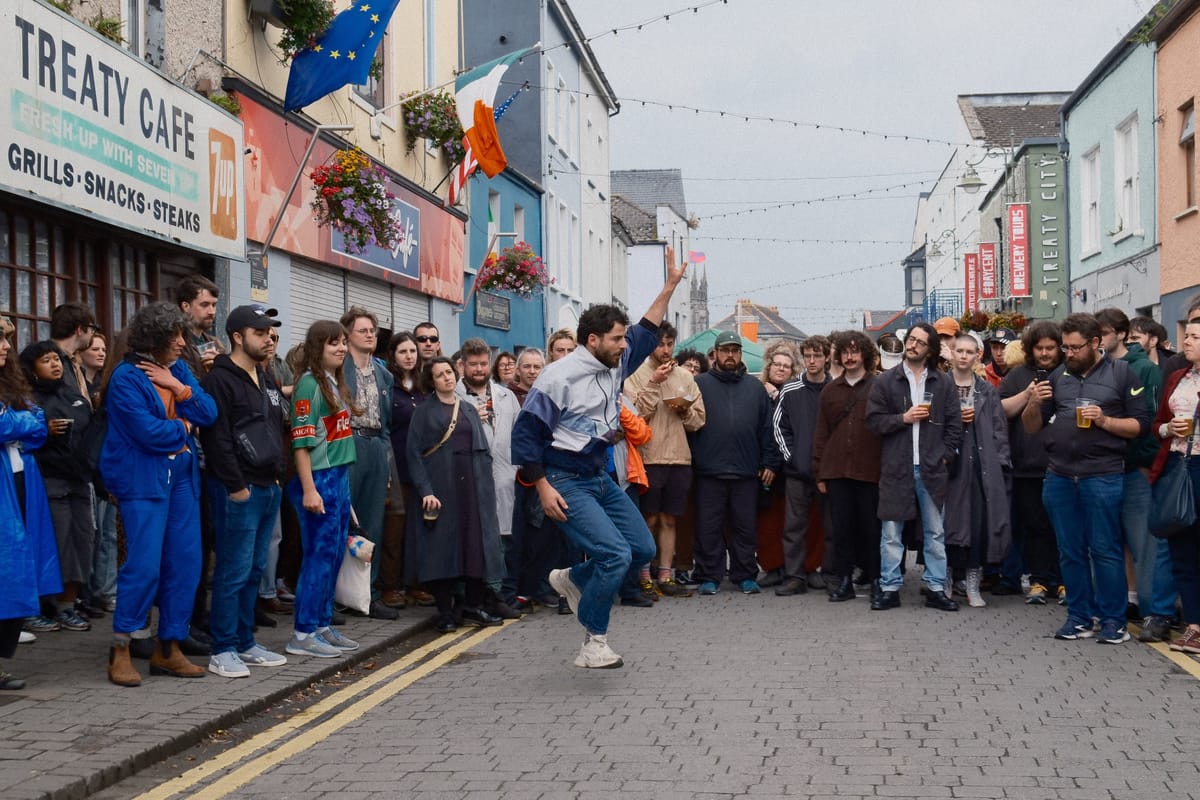
I am writing this opening paragraph in a rare lull of the Féile Na Gréine schedule. The festival has brought me a lot of joy for my first outing there - I've been struggling to make my way to it off the back of many busy summers and navigating Ireland's completely cracked hospitality prices. Today though, after spending more than I would like on a hotel and soaking it in so far, I've found myself repeating the simple creed – One Weekend In August For The Rest Of My Life.
So far I've seen Fomorian Vein's abrasive digital hardcore absolutely tear up a random public street at like, five in the afternoon. This was after seeing Anemone delivering beautiful, glacial drone-folk that was only enhanced by the bouts of rain. I've seen a Emmy Shigeta drop a Japanese reggae flip on Born Slippy and Polyp ignite a dancefloor through chaotic selections. I've allowed Landless' tear-inducing folk harmonies to ease a somewhat hungover mind. I've seen a dance performance spill out into the street. I've seen fantastic singer-songwriters and punk and grime and what feels like the full spectrum of my music taste condensed into, like, a day and a half. I'll do a few more paragraphs and I'll go at it again.
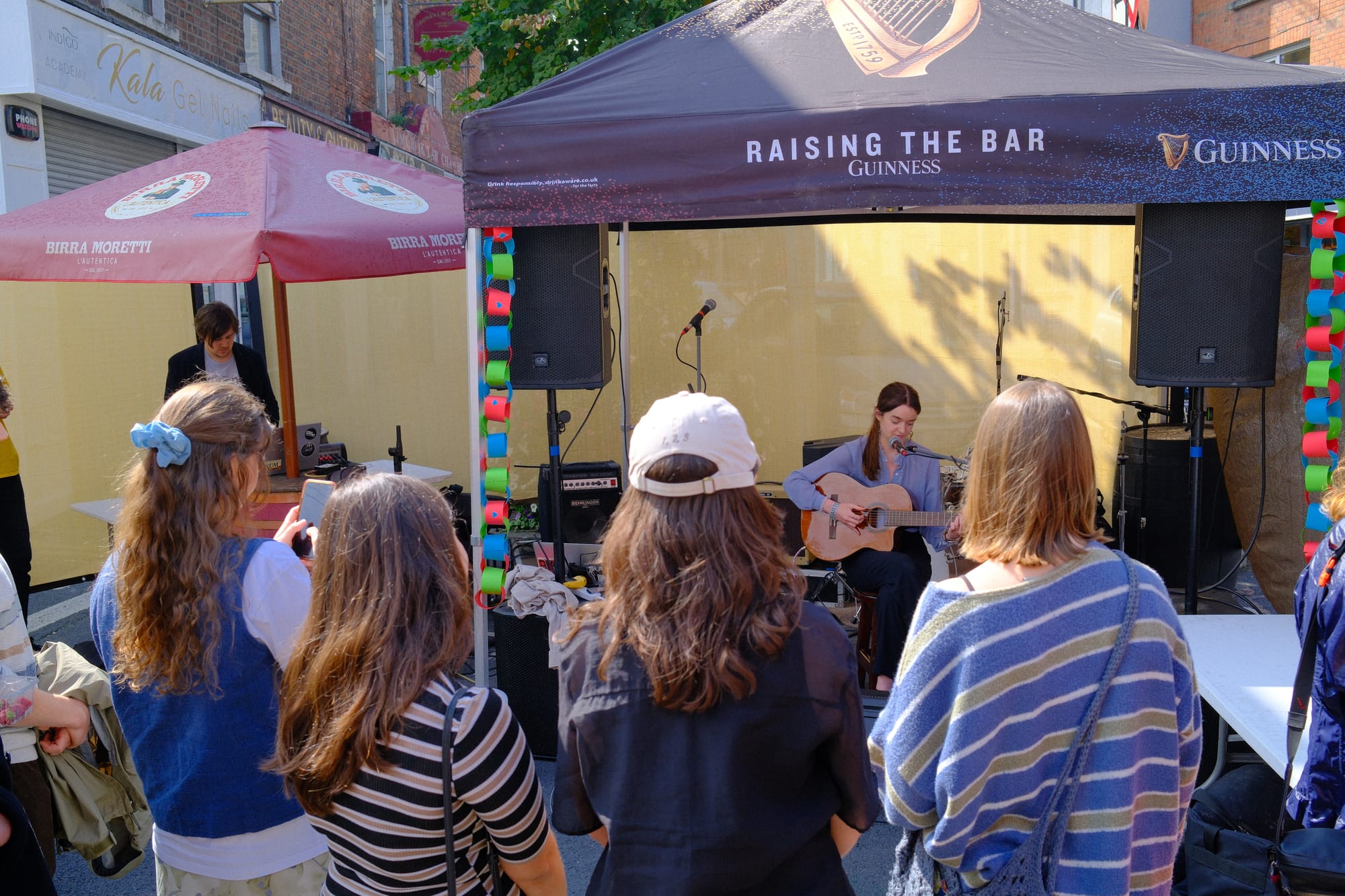
It was at the first one on that list, that Fomorian Vein set - tangled up in a crowd losing their mind at this pure display of sonic excess at 170bpm and beyond, but still on an active city street, with the odd bitta traffic passing by and a barbershop doing business-as-usual one door down, that I remembered the vital truth: festivals suspend time itself. This is music that gets booked more rarely than it deserves, and often finding it comes with an Eircode drop off the grid. Now you're seeing it and there's someone with a Boojum burrito bowl beside you. There's a bit of Arts Council funding and there's a limited-edition local beer. There's even young people who aren't old enough to get into clubs experiencing a kind of music they don't otherwise get to hear outside their headphones. It was the weekend's most-talked-about from my subjective little view. Open-access madness.
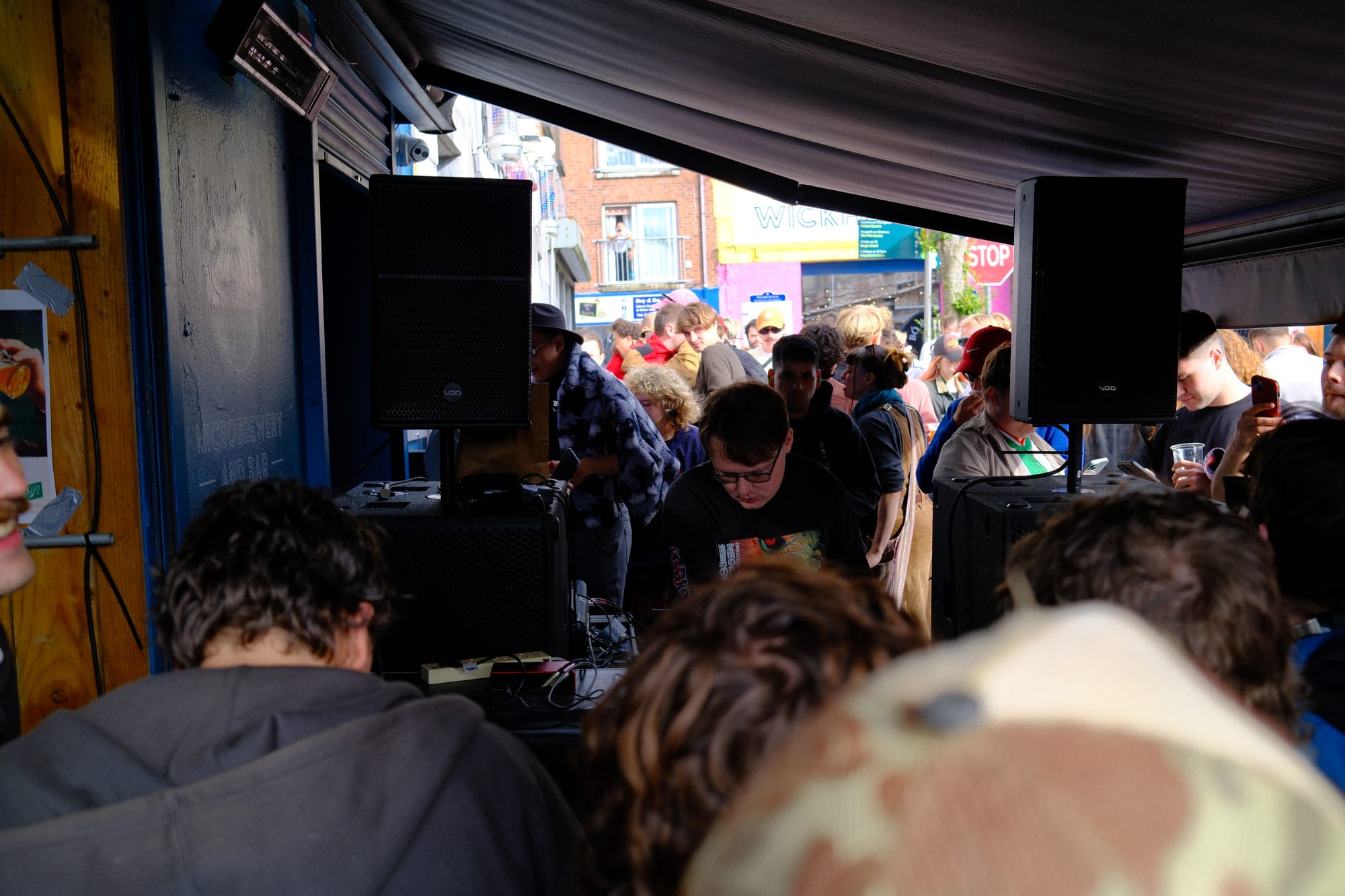
Festival liminality creeps up on you. On one hand there's no point in defining the concept in any technical or academic sense; experience the 6am metro home from Primavera Sound next to the baffled commuters, the service-station crowd on a drive home from one of the campsites that dot the summer and you will witness festival time collide with the chrono-normative. The best festivals in the world are ones that make you fully buy into their flow of time without you realising it - collectively suspend the world and put the art in the centre.
Mesh Net, a zine published by Dublin's queer nightlife collective Club Comfort, documenting "the history, experience, and significance of social dancing in Ireland", has a phenomenal essay about this sense of falling out of time. (I would tell you who wrote it but I loaned my copy of Mesh Net to a fella who's over in New York at the moment so I don't have it to hand and I'm going off of memory here. Buy the zine though.) At one point, that essay looks at events like the Donnybrook Fair – which was recorded as having an audience of nearly 75,000 in 1841 – before being killed off by deliberate suppression, not least from the Catholic Church itself. I don't think it's in any way sensationalist to look at the deep connection we have with music as a nation - especially our rich folk music tradition - and these enormous gatherings, and conclude that there really is some revolutionary power in festivals. Certainly it's no question that the Donnybrook Fair was the victim of those who considered it a threat. (Donnybrook Fair is now the name for a chain of expensive grocery shops. Maybe the gentrifiers of a 23rd century Laois metropolis will get their prosciutto and kombucha from a chain called Electric Picnic.)
Féile Na Gréine manages to deliver that sense of time collapsing in on itself and does it in the middle of a city where any random passerby could theoretically flow into it. It is so welcoming, so bursting with a legitimate sense of community. I met some truly fantastic people at it.
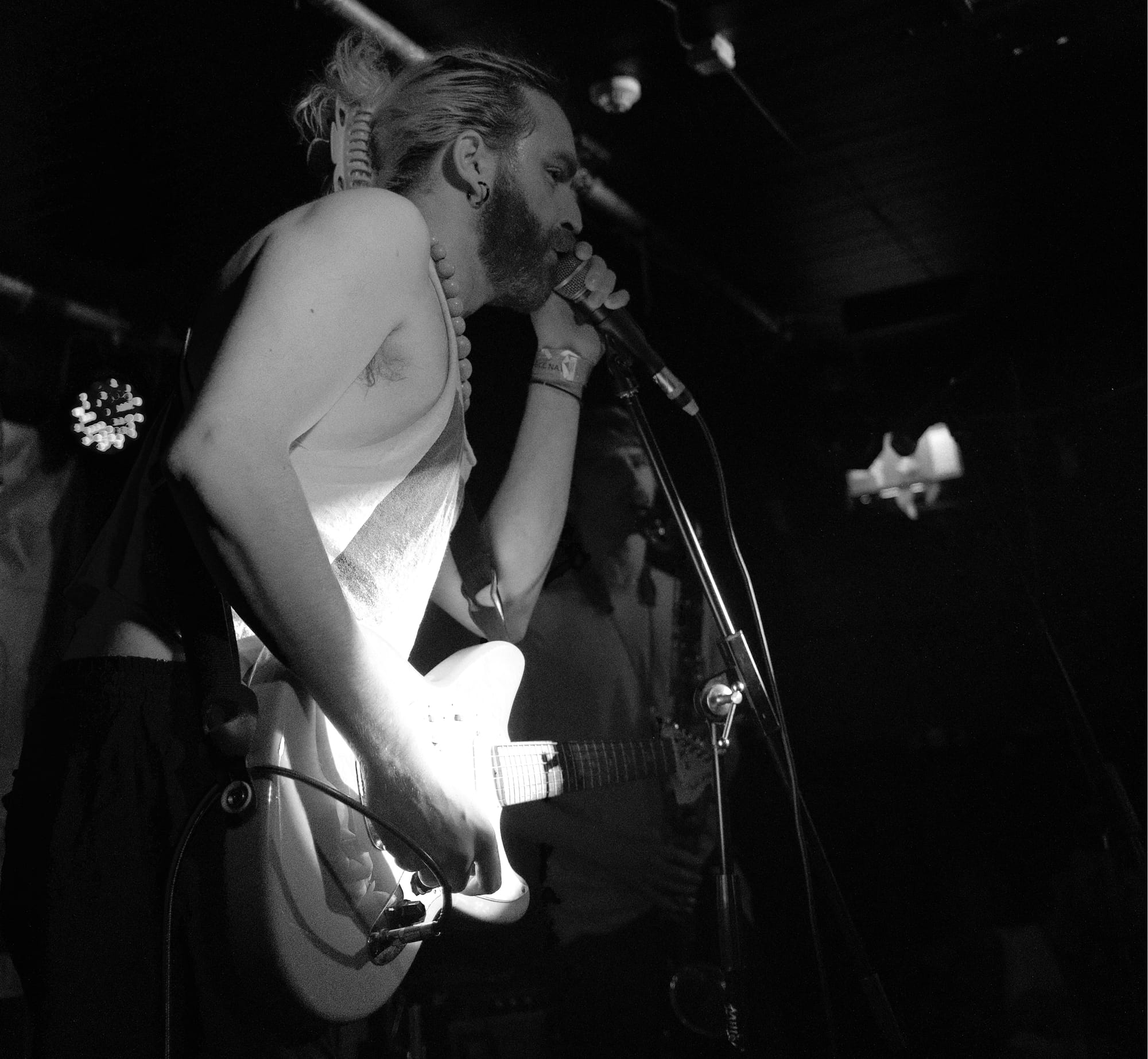
In the time between the opening paragraphs and now I saw how it ended; first with Crying Loser - Arty at his most powerful, pure energy. Then came Trá Pháidín - the band I just recently called the best in the country - proving me right with their almost-psychedelic takes on trad that hit even harder live when there's beautiful bespoke live visuals going for it and big loud chants against the far-right. (Revolutionary power in festivals, remember?) Finally, Boyfrens x Messyng FC - a collab set for the ages, and the most fitting ending Féile can have.
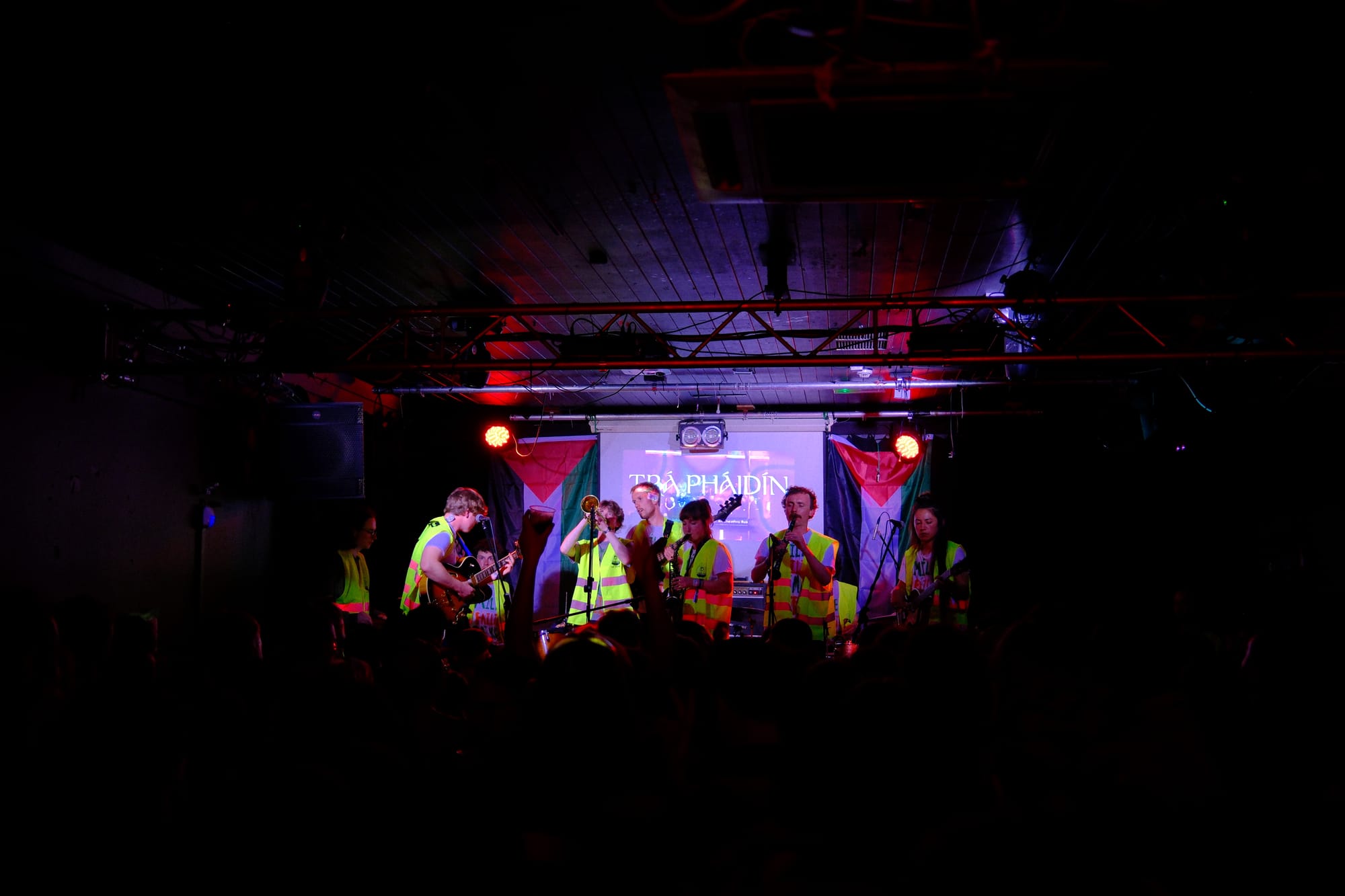
Boyfrens started with a selection of infectious floor-fillers planned for release very soon, but combined with Messyng's insanity - who landed on stage lipsyncing the full Gillette theme and went on turning the Challengers soundtrack into an almighty banger about warring chip van owners in Kenmare - the set began reaching endlessly sillier and sillier moments. The set was interrupted by ads for Raid: Shadow Legends and HelloFresh as the band screamed "YOU NEED TO LISTEN TO THESE. IT KEEPS THE FESTIVAL FREE FOR EVERYONE." Boyfrens inexplicably has made a Jersey Club remix of Pat Kenny's radio show theme. The set ended with a heartfelt, room shaking singalong to Robbie Williams' Angels - or at least, the most aggressively early-2010s big room house edit YouTube had to offer. But at multiple times throughout this set, DJ Daddy Healy-Rave takes the mic to drop a simple refrain; "I love my friends".
Absurd performance art about loving your friends rendered on a pair of CDJs is maybe the most Féile na Gréine thing of all.
I'm all in.

As a young lad setting up in the enormous Electric Picnic campsite for the first time in 2015, it did feel powerful - crossing a threshold into festival time. Late night wanders to see what was still going on after the mainstage faded away; hanging out around the smaller stages. I didn't really buy it and I haven't been back, but friends who still go tell me they're having the best of their time there knocking around some of the side-stages, going to see absolute top-tier Irish stuff. The festival had some big late announcements this year; the likes of Trá Pháidín, Sloucho, Post Punk Podge, Mohammad Syfkhan, Rising Damp... If the festival never got an international headliner again, would we miss them? I feel like the truth is I'd rather spend a lot less money than EP money to go see a rake of solid Irish acts. But the other thing is I'm forever a city festival enjoyer, regardless of what Longitude did to me. I like my morning showers and having cozier spots to hang out when the weather turns, but I think I also just like strings of gig put together like that, the city turned into one big venue.
The first festival I ever truly loved was probably the 2015 edition of Sounds From A Safe Harbour. Seeing Talos for the first time in an absolutely packed Oval, and my first St. Luke's show to see Villagers at what I really think was the point were they were the best act in the country, feeling a real buzz of constant stuff happening around the city, and a lot of it very easy to access. I didn't pay for much that year - both those events were free. And 2017's edition had Bon Iver performing 22, A Million, on the goddamn double Steinway, for! free! Vincent Moon if you're reading this release the footage I beg.
I still go to SFSH, but I miss the buzz. The 2022 festival had some fantastic shows, I found some great new music at it and really loved my short day-trip, but it was a lot of very short, quite expensive ticketed events.
A lot of the team behind SFSH were also involved in Berlin's 37d03d ("PEOPLE" fka "Michelberger Music") Festival. That one had the hilariously unstable but very fun model of giving artists the enormous Funkhaus to work with for a week, and presenting the work at random to attendees. You show up, you get a wristband for a given group, you only get told where to go with your group but not what you'll see there. It's days spent in active discovery. It had the buzz.
Féile, as well, is 100% buzz. Four ticketed shows, many more just need you to show up. One costs a tenner. The others are free. Don't know what you're in for? The festival will earn your trust quickly and hold it until the end. I showed up to a lot of stuff not knowing what I was in for, simply because it was so easy to find my way.
Hey, come closer, I'll show you my bias.
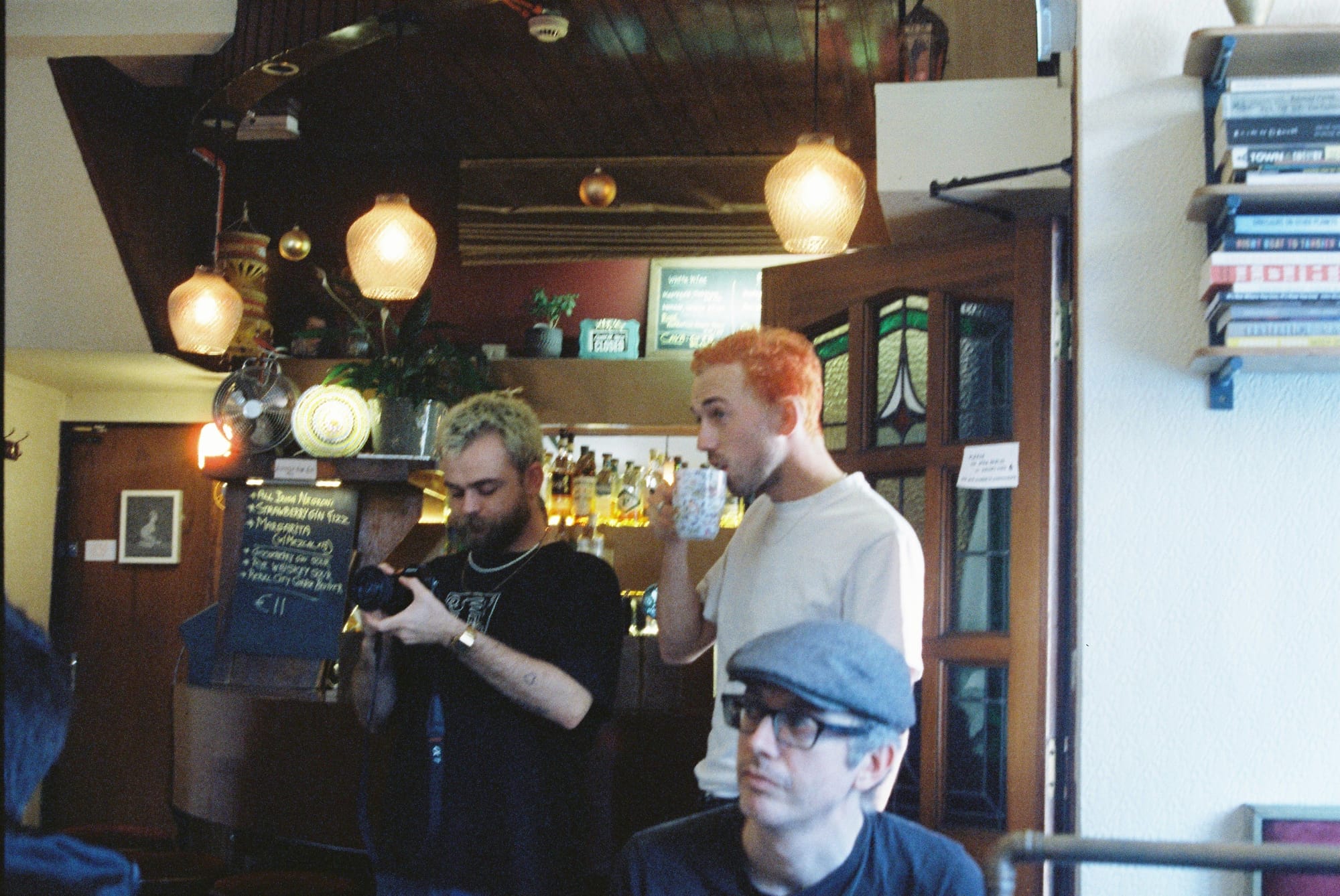
Last year I was asked to help out with an ambitious plan to build a new festival for Cork City in a matter of weeks. River Runs Round was announced with a month to its launch date and it transformed my life. Fully grassroots, no funding, just put on a rake of events and prove that this can work. It somehow didn't lose any money and we figured - do it again and do everything in our power to ensure everyone gets paid what they deserve.
It has been a stressful few months, but we're on it. Funding applications denied, various bureaucracies striking from time to time, the goddamn new Eventbrite fees (thankfully now vanquished)... River Runs Round is back, somehow, thanks to the tireless work and endless devotion of the festival team. It's nowhere near the scale of Féile yet, but I still can't wait to get back to my original home city and begin to feel just a little bit of that buzz.
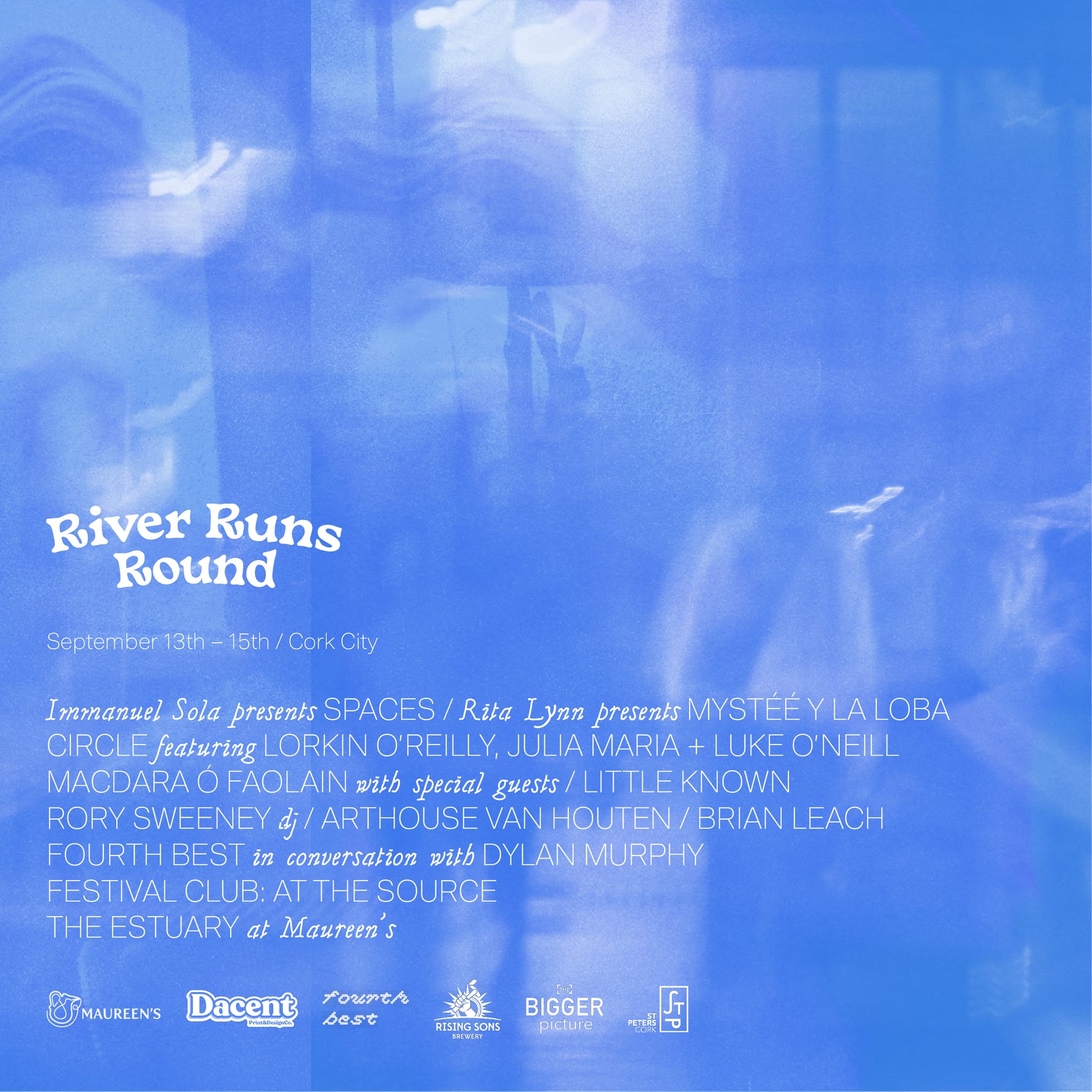
While helping out with last year's festival, I was asked to speak at a panel with living archive and legendary Cork music journalist Mike McGrath-Bryan, moderated by the formidable Julie Landers. The conversation was about music writing, and I was there mostly from the perspective of my time spent doing local label stuff and writing press releases. Yet in that environment, I had a real breakthrough with what I wanted to do about music. Fourth Best was born in that kind of space. Inspired by the talk's implicit call to action, I began writing "The Article" that turned into the start of this site. To restate that one:
The demand is participation, not pity. If the Spotify disaster machine is normal context around music, listening with care is a radical act. It means sharing the music is a radical act. Bringing your friends to gigs is a radical act. Buying the cassette tapes or the tracks on Bandcamp and stuffing them on an iPod is a radical act. Book the rooms. Collaborate. Put others on and have them put you on. Write playlists and put radio shows on. Write about music. Read other people's writing and share it. Buy a tape deck and help people put out music. Create the context. Empower the scene. Call it a grassroots re-territorialisation if you must - a reclamation of the efforts of our communities.
Fourth Best is still very much at the beginning and I'm trying to learn to write about gigs I like without them turning into 2000-word manifestoes about destroying the streaming music economy. One of my long-time goals for this site was an interview series. Well!

I am doing my first interview for Fourth Best live in Plugd Records for River Runs Round. I'm bringing the incomparable Dylan Murphy, founder of the Mabfield podcast and the man who ran District's culture desk for five years. This year's talk will be a bit of a sequel to last year's, but I'm really excited to ask Dylan about what's next for him after leaving District behind. He has a deep deep love of the same Irish music that I love, but what matters most to him is storytelling. The archive is in good hands. If this is your thing: tickets are free.
When I was there in the middle of that Fomorian Vein set, I text a pal on the River Runs Round team:

We're going to keep working on it until we can channel that kind of joy. We've seen the blueprint. A few weekends a year for the rest of my life.





